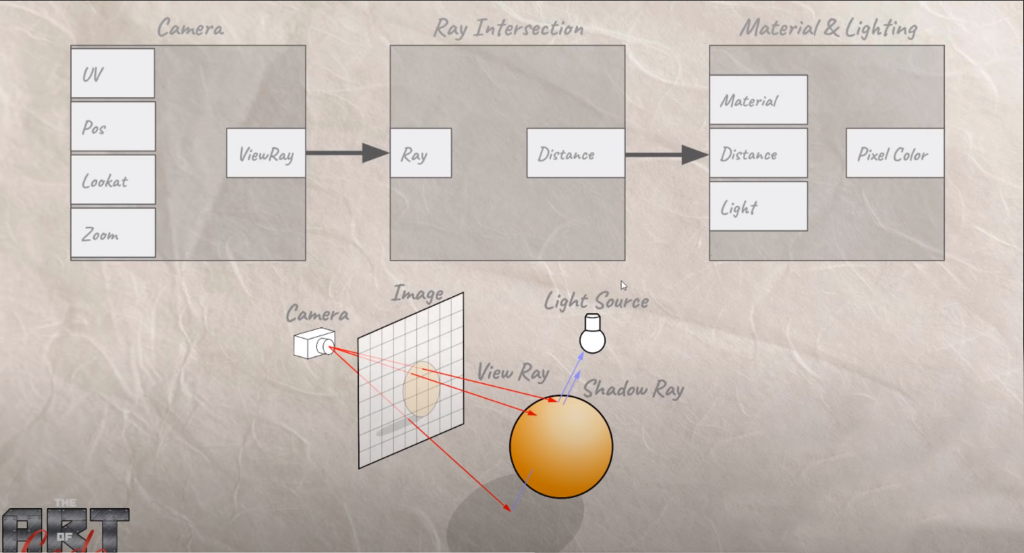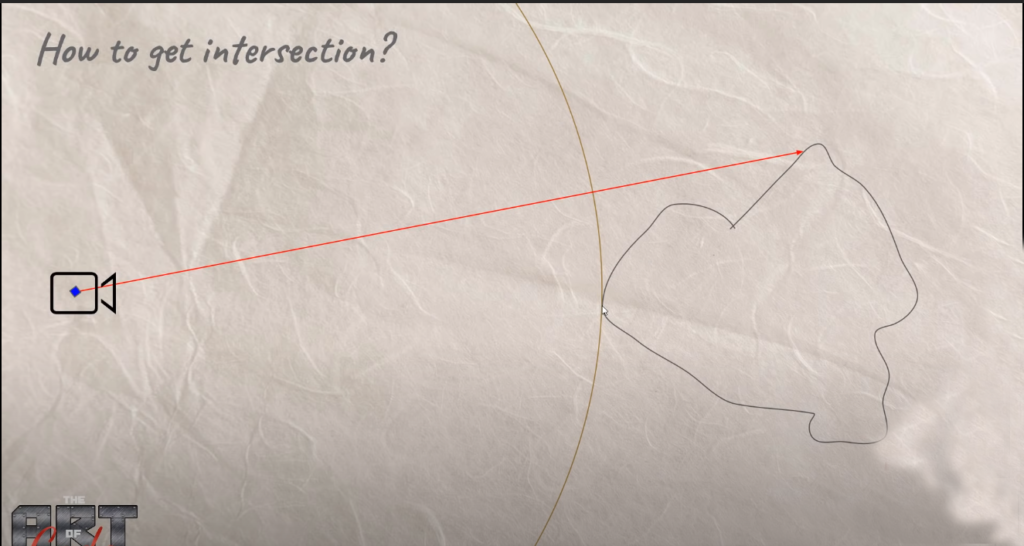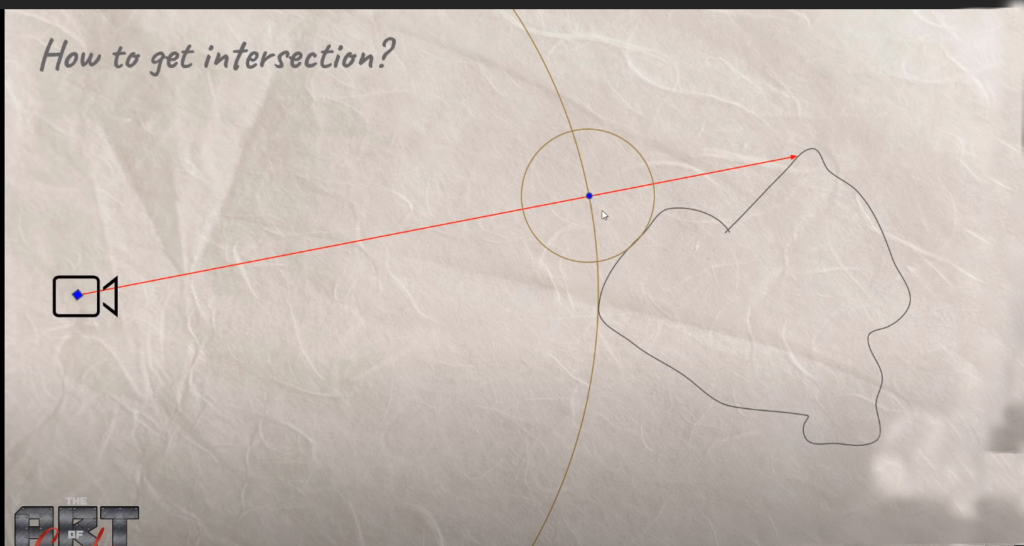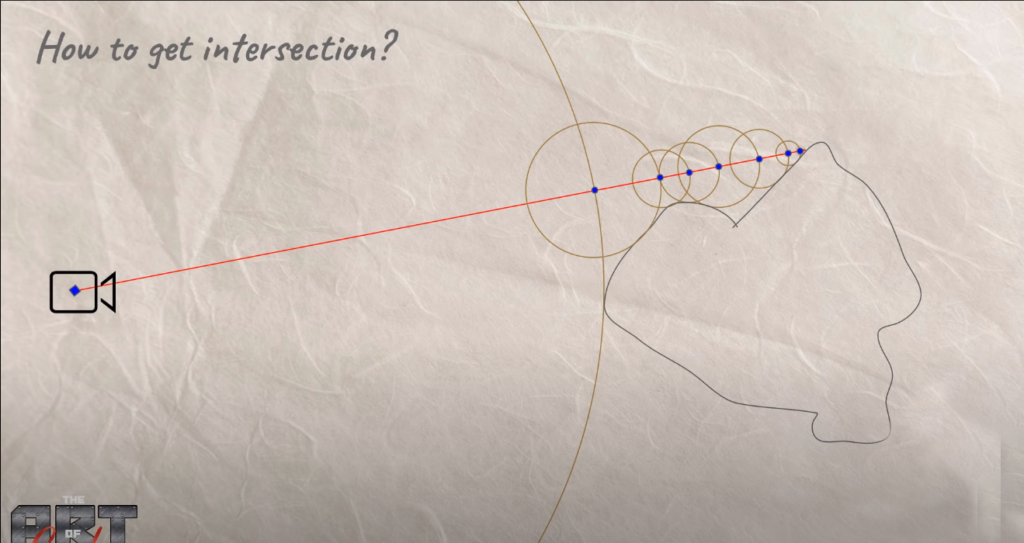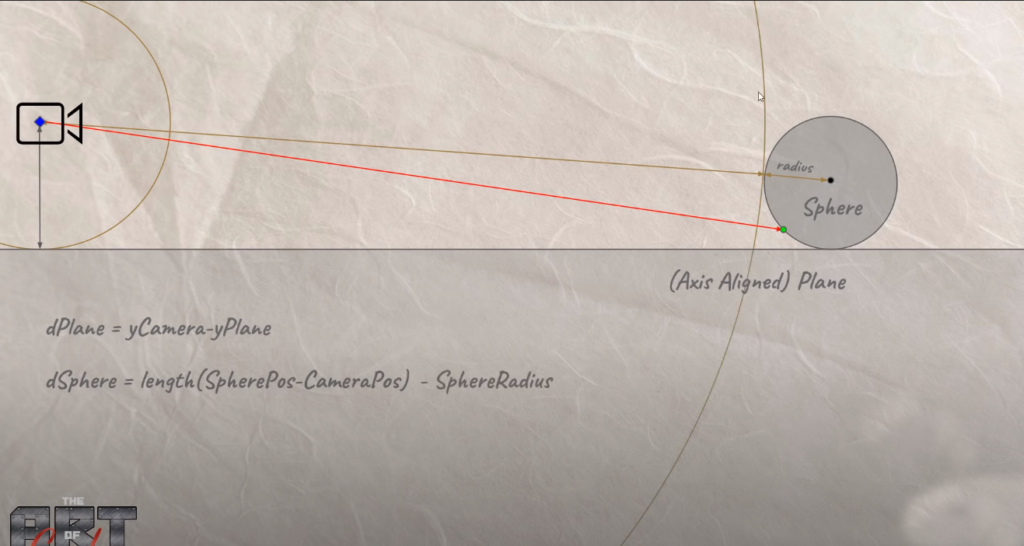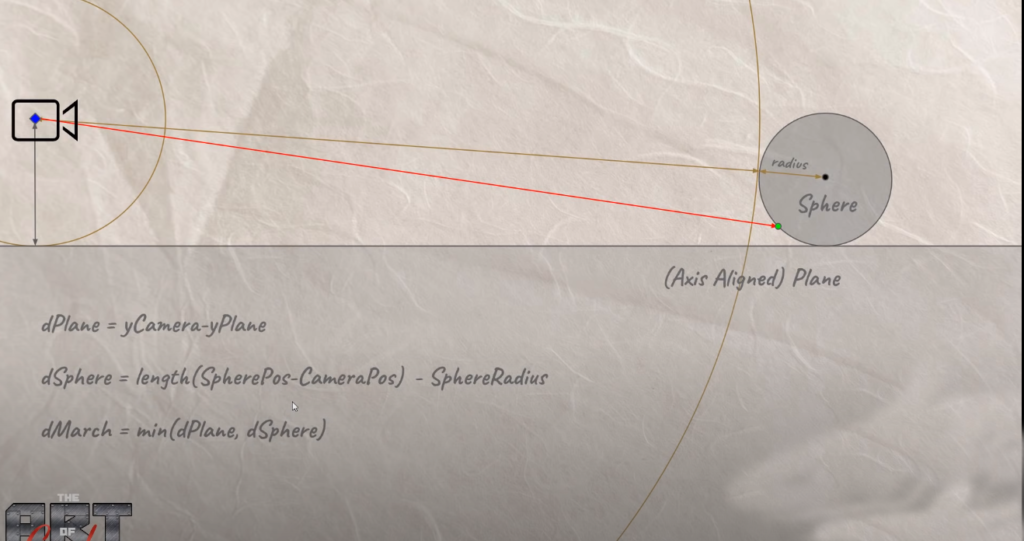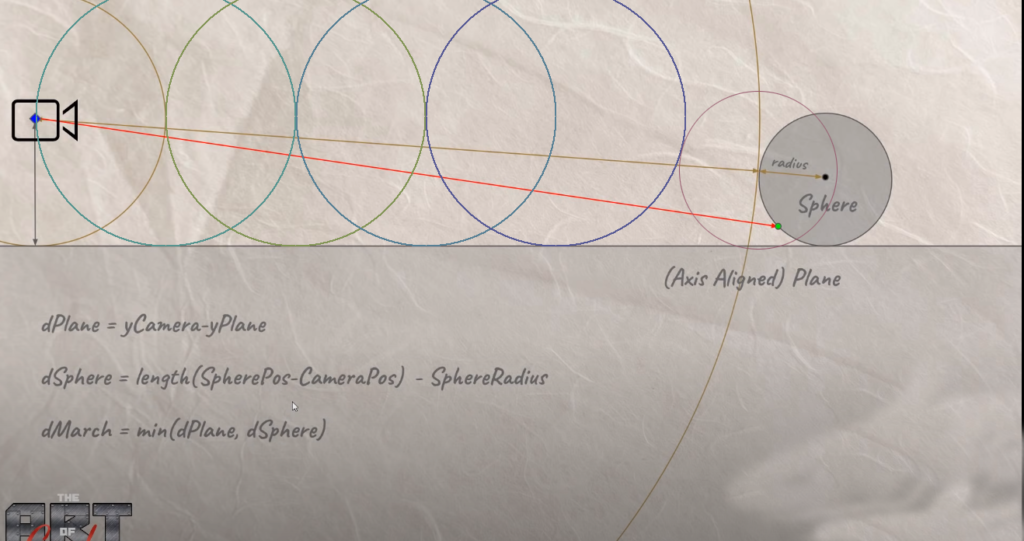Shader "Unlit/GerstnerWaveStandard"
{
Properties
{
_MainTex ("Texture", 2D) = "white" {}
[Header(BaseShading)]
_BaseMap ("Example Texture", 2D) = "white" { }
[HDR]_BaseColor ("Base Colour", Color) = (0, 0.66, 0.73, 1)
_WaterFogColor ("Water Fog Colour", Color) = (0, 0.66, 0.73, 1)
_FogDensity ("Fog Density", range(0, 1)) = 0.1
_NormalMap ("Normal Map", 2D) = "white" { }
_NormalScale ("Normal Scale", Range(0, 1)) = 0.1
_Shininess ("High Light Roughness", Range(0, 0.1)) = 0.01
[Space(20)]
[Header(Reflection)]
_Skybox ("Skybox", Cube) = "white" { }
[Header(Refractive)]
_AirRefractiveIndex ("Air Refractive Index", Float) = 1.0
_WaterRefractiveIndex ("Water Refractive Index", Float) = 1.333
_FresnelPower ("Fresnel Power", Range(0.1, 50)) = 5
_RefractionStrength ("Refraction Strength", Range(0, 1)) = 0.1
[Space(20)]
[Header(SSS)]
_FrontSubsurfaceDistortion ("Front Subsurface Distortion", Range(0, 1)) = 0.5
_BackSubsurfaceDistortion ("Back Subsurface Distortion", Range(0, 1)) = 0.5
_FrontSSSIntensity ("Front SSS Intensity", float) = 0.2
_HeightCorrection ("SSS Height Correction", float) = 6
[Space(20)]
[Header(Foam)]
_FoamIntensity ("Foam Intensity", float) = 0.5
_FoamNoiseTex ("Foam Noise", 2D) = "white" { }
[Space(20)]
[Header(Caustic)]
_CausticIntensity ("Caustic Intensity", float) = 0.5
_CausticTex ("Caustic Texture", 2D) = "white" { }
_Caustics_Speed ("Caustics Speed,(x,y)&(z,w)", Vector) = (1, 1, -1, -1)
[Space(20)]
[Header(Waves)]
_Speed ("Speed", float) = 0.2
_Frequency ("Frequency", float) = 2
_WaveA ("Wave A (dir, steepness, wavelength)", Vector) = (1, 0, 0.5, 10)
_WaveB ("Wave B", Vector) = (0, 1, 0.25, 20)
_WaveC ("Wave C", Vector) = (1, 1, 0.15, 10)
_WaveD ("Wave D", Vector) = (0, 1, 0.25, 20)
_WaveE ("Wave E", Vector) = (1, 1, 0.15, 10)
_WaveF ("Wave F", Vector) = (0, 1, 0.25, 20)
_WaveG ("Wave G", Vector) = (1, 1, 0.15, 10)
_WaveH ("Wave H", Vector) = (0, 1, 0.25, 20)
_WaveI ("Wave I", Vector) = (1, 1, 0.15, 10)
_WaveJ ("Wave J", Vector) = (1, 1, 0.15, 10)
_WaveK ("Wave K", Vector) = (1, 1, 0.15, 10)
_WaveL ("Wave L", Vector) = (1, 1, 0.15, 10)
[Space(20)]
[Header(Tessellation)]
_TessellationUniform ("Tessellation Uniform", Range(1, 64)) = 1
_TessellationEdgeLength ("Tessellation Edge Length", Range(5, 100)) = 50
[Toggle(_TESSELLATION_EDGE)]_TESSELLATION_EDGE ("TESSELLATION EDGE", float) = 0
[Space(20)]
[Header(Others)]
_shadowAttenuation("shadowAttenuation",float)=0.2
_CameraOpaqueTexture("_CameraOpaqueTexture",2D)="white"{}
}
SubShader
{
Tags { "RenderType" = "Transparent" "RenderQueue" = "Transparent" }
ZWrite Off
ZTest On
CGPROGRAM
#include "Lighting.cginc"
#include "unityCg.cginc"
float4 _BaseMap_ST, _FoamNoiseTex_ST, _CausticTex_ST;
float4 _BaseColor, _WaterFogColor, _Caustics_Speed;
float4 _NormalMap_ST;
float4 _WaveA, _WaveB, _WaveC, _WaveD, _WaveE, _WaveF, _WaveG, _WaveH, _WaveI, _WaveJ, _WaveK, _WaveL;
float _Speed, _Frequency, _NormalScale, _AirRefractiveIndex, _WaterRefractiveIndex, _FresnelPower;
float _RefractionStrength, _FogDensity, _Shininess, _FrontSubsurfaceDistortion, _BackSubsurfaceDistortion;
float _FrontSSSIntensity, _HeightCorrection, _FoamIntensity, _CausticIntensity;
ENDCG
Pass
{
Name "Example"
Tags { "LightMode" = "ForwardBase" }
ZWrite off
CGPROGRAM
#pragma vertex vert
#pragma fragment frag
// make fog work
// #pragma multi_compile_fog
#include "UnityCG.cginc"
#include "AutoLight.cginc"
#include "Lighting.cginc"
struct a2v
{
float4 positionOS: POSITION;
float2 uv: TEXCOORD0;
float3 normal: NORMAL;
float4 color: COLOR;
};
struct v2f
{
float4 positionCS: SV_POSITION;
float2 uv: TEXCOORD0;
float3 normalWS: TEXCOORD1;
float3 positionWS: TEXCOORD2;
float3 tangentWS: TEXCOORD3;
float4 scrPos: TEXCOORD4;
float heightOS: TEXCOORD5;
float fogFactor: TEXCOORD6;
float4 color: COLOR;
};
samplerCUBE _Skybox;
float4 _Skybox_ST;
sampler2D _CameraOpaqueTexture;
float4 _CameraOpaqueTexture_ST;
sampler2D _FoamNoiseTex;
float2 _FoamNoiseTex_ST;
sampler2D _CausticTex;
float4 _CausticTex_ST;
float _Speed, _Frequency, _NormalScale, _AirRefractiveIndex, _WaterRefractiveIndex, _FresnelPower;
float4 _WaveA, _WaveB, _WaveC, _WaveD, _WaveE, _WaveF, _WaveG, _WaveH, _WaveI, _WaveJ, _WaveK, _WaveL;
float4 _NormalMap_ST;
float _RefractionStrength, _FogDensity, _Shininess, _FrontSubsurfaceDistortion, _BackSubsurfaceDistortion;
float4 _BaseColor, _WaterFogColor, _Caustics_Speed;
float _shadowAttenuation;
float _FrontSSSIntensity, _HeightCorrection, _FoamIntensity, _CausticIntensity;
sampler2D _MainTex;
float4 _MainTex_ST;
sampler2D _NormalMap;
//-------------GenrateGerstnerWave-------------
float3 GerstnerWave(
float4 wave, float3 p, inout float3 tangent, inout float3 binormal
)
{
float steepness = wave.z;
float wavelength = wave.w;
float k = 2 * UNITY_PI / wavelength;
float c = sqrt(9.8 / k);
float2 d = normalize(wave.xy) * _Frequency;
float f = k * (dot(d, p.xz) - c * _Time.y * _Speed);
float a = steepness / k;
tangent += float3(
- d.x * d.x * (steepness * sin(f)),
d.x * (steepness * cos(f)),
- d.x * d.y * (steepness * sin(f))
);
binormal += float3(
- d.x * d.y * (steepness * sin(f)),
d.y * (steepness * cos(f)),
- d.y * d.y * (steepness * sin(f))
);
return float3(
d.x * (a * cos(f)),
a * sin(f),
d.y * (a * cos(f))
);
}
//-----------CalculateFresnel------------------
float CalculateFresnel(float3 viewDir, float3 normal)
{
float R_0 = (_AirRefractiveIndex - _WaterRefractiveIndex) / (_AirRefractiveIndex + _WaterRefractiveIndex);
R_0 *= R_0;
return R_0 + (1.0 - R_0) * pow((1.0 - saturate(dot(viewDir, normal))), _FresnelPower);
}
half3 Highlights(half3 positionWS, half roughness, half3 normalWS, half3 viewDirectionWS)
{
//Light mainLight = GetMainLight();
half roughness2 = roughness * roughness;
half3 halfDir = normalize(_WorldSpaceLightPos0.xyz + viewDirectionWS);
half NoH = saturate(dot(normalize(normalWS), halfDir));
half LoH = saturate(dot(_WorldSpaceLightPos0.xyz, halfDir));
// GGX Distribution multiplied by combined approximation of Visibility and Fresnel
half d = NoH * NoH * (roughness2 - 1) + 1.0001;
half LoH2 = LoH * LoH;
half specularTerm = roughness2 / ((d * d) * max(0.1, LoH2) * (roughness + 0.5) * 4);
specularTerm = min(specularTerm, 10);
return specularTerm * _LightColor0.rgb * _shadowAttenuation;
}
//-------------GetOddNegativeScale----------------
float GetOddNegativeScale()
{
return unity_WorldTransformParams.w;
}
//------------CreateTangentToWorld---------------
float3x3 CreateTangentToWorld(float3 normal, float3 tangent, float flipSign)
{
// For odd-negative scale transforms we need to flip the sign
float sgn = flipSign * GetOddNegativeScale();
float3 bitangent = cross(normal, tangent) * sgn;
return float3x3(tangent, bitangent, normal);
}
//-----------TransformTangentToWorld----------
float3 TransformTangentToWorld(float3 dirTS, float3x3 tangentToWorld)
{
// Note matrix is in row major convention with left multiplication as it is build on the fly
return mul(dirTS, tangentToWorld);
}
float3 GetCameraPositionWS()
{
return _WorldSpaceCameraPos;
}
//-----------SampleSceneDepth--------------
sampler2D _CameraDepthTexture;
sampler2D sampler_CameraDepthTexture;
float SampleSceneDepth(float2 uv)
{
return tex2D(_CameraDepthTexture, UnityStereoTransformScreenSpaceTex(uv)).r;
}
float SubsurfaceScattering(float3 viewDir, float3 lightDir, float3 normalDir,
float frontSubsurfaceDistortion, float backSubsurfaceDistortion, float frontSSSIntensity, float thickness)
{
//分别计算正面和反面的次表面散射
float3 frontLitDir = normalDir * frontSubsurfaceDistortion - lightDir;
float3 backLitDir = normalDir * backSubsurfaceDistortion + lightDir;
float frontsss = saturate(dot(viewDir, -frontLitDir));
float backsss = saturate(dot(viewDir, -backLitDir));
float result = saturate(frontsss * frontSSSIntensity + backsss) * thickness;
return result;
}
/*
//------------Light------------------
struct Light
{
half3 direction;
half3 color;
half distanceAttenuation;
half shadowAttenuation;
};
//-----------GetMainLight-------------
Light GetMainLight()
{
Light light;
light.direction = _WorldSpaceLightPos0.xyz;
// unity_LightData.z is 1 when not culled by the culling mask, otherwise 0.
light.distanceAttenuation = unity_LightData.z;
#if defined(LIGHTMAP_ON) || defined(_MIXED_LIGHTING_SUBTRACTIVE)
// unity_ProbesOcclusion.x is the mixed light probe occlusion data
light.distanceAttenuation *= unity_ProbesOcclusion.x;
#endif
light.shadowAttenuation = 1.0;
light.color = _MainLightColor.rgb;
return light;
}
*/
v2f vert (a2v v)
{
v2f o;
float3 tangent = float3(1, 0, 0);
float3 binormal = float3(0, 0, 1);
float3 p = v.positionOS;
p += GerstnerWave(_WaveA, v.positionOS.xyz, tangent, binormal);
p += GerstnerWave(_WaveB, v.positionOS.xyz, tangent, binormal);
p += GerstnerWave(_WaveC, v.positionOS.xyz, tangent, binormal);
p += GerstnerWave(_WaveD, v.positionOS.xyz, tangent, binormal);
p += GerstnerWave(_WaveE, v.positionOS.xyz, tangent, binormal);
p += GerstnerWave(_WaveF, v.positionOS.xyz, tangent, binormal);
p += GerstnerWave(_WaveG, v.positionOS.xyz, tangent, binormal);
p += GerstnerWave(_WaveH, v.positionOS.xyz, tangent, binormal);
p += GerstnerWave(_WaveI, v.positionOS.xyz, tangent, binormal);
p += GerstnerWave(_WaveJ, v.positionOS.xyz, tangent, binormal);
p += GerstnerWave(_WaveK, v.positionOS.xyz, tangent, binormal);
p += GerstnerWave(_WaveL, v.positionOS.xyz, tangent, binormal);
o.heightOS = p.y;
float3 normal = normalize(cross(binormal, tangent));
UNITY_INITIALIZE_OUTPUT(v2f, o);
o.positionCS = UnityObjectToClipPos(p);
o.normalWS = UnityObjectToWorldNormal(v.normal);
o.positionWS = mul(unity_ObjectToWorld,v.positionOS);
o.scrPos = ComputeScreenPos(o.positionCS);
o.uv = TRANSFORM_TEX(v.uv, _MainTex);
//UNITY_TRANSFER_FOG(o,o.positionCS);
return o;
}
fixed4 frag (v2f i) : SV_Target
{
float3 normalWS = normalize(i.normalWS);
//-------------normal----------
float3x3 TtoW = CreateTangentToWorld(i.normalWS, i.tangentWS, 1);
fixed4 normalTS = tex2D(_NormalMap,i.uv);
normalTS.xyz = normalize(UnpackNormal(normalTS));
normalWS = lerp(normalWS,normalize(TransformTangentToWorld(normalTS,TtoW)),_NormalScale);
normalWS = normalize(normalWS);
//------------reflection-----------
float3 viewDirectionWS = normalize(GetCameraPositionWS() - i.positionWS.xyz);
float3 reflectDir = reflect(-viewDirectionWS, normalWS);
float4 reflectCol = texCUBE(_Skybox,reflectDir);
//------------refraction------------
float2 scrPos = i.scrPos / i.scrPos.w;
float depth = SampleSceneDepth(scrPos);
depth = LinearEyeDepth(depth);
float surfaceDepth = i.scrPos.w;
float depthDiffer = depth - surfaceDepth;
float2 uvOffset = normalWS.xz * _RefractionStrength * saturate(depthDiffer);
float2 offsetPos = scrPos + uvOffset;
float offsetPosDepth = SampleSceneDepth(offsetPos);
offsetPosDepth = LinearEyeDepth(offsetPosDepth);
offsetPos = scrPos + uvOffset * step(surfaceDepth, offsetPosDepth);
float4 refractCol = tex2D(_CameraOpaqueTexture,offsetPos);
float depthFactor = depth / surfaceDepth;
float3 underPos = (i.positionWS - GetCameraPositionWS()) * depthFactor + GetCameraPositionWS();
float2 causticSampler = (underPos.xy + underPos.xz + underPos.yz) / 100 * _CausticTex_ST.xy;
float4 caustic1 = tex2D(_CausticTex, causticSampler + _Caustics_Speed.xy * _Time.y/30);
float4 caustic2 = tex2D(_CausticTex, causticSampler + _Caustics_Speed.zw * _Time.y/30);
float4 caustic = min(caustic1, caustic2);
//------------fog-------------
float offsetDepthDiffer = surfaceDepth > offsetPosDepth ? depthDiffer: offsetPosDepth - surfaceDepth;
float fogFactor = saturate(1 - exp(-offsetDepthDiffer * _FogDensity / 10)) * _shadowAttenuation;
float4 waterCol = lerp(_WaterFogColor, _BaseColor, fogFactor);
refractCol = lerp(waterCol, waterCol * refractCol, saturate(fogFactor));
refractCol += caustic * pow((1 - saturate(fogFactor)), 10);
//------------specular----------
float3 halfDir = normalize(viewDirectionWS + normalize(_WorldSpaceLightPos0.xyz));
float3 specular = Highlights(i.positionWS, _Shininess, normalWS, viewDirectionWS);
specular *= _shadowAttenuation;
//------------SSS---------------
float SSSValue = SubsurfaceScattering(viewDirectionWS, _WorldSpaceLightPos0.xyz, normalWS, _FrontSubsurfaceDistortion,
_BackSubsurfaceDistortion, _FrontSSSIntensity, saturate(i.heightOS - _HeightCorrection));
SSSValue *= _shadowAttenuation;
float fresnel = CalculateFresnel(viewDirectionWS, normalWS);
float4 scatterCol = lerp(refractCol, reflectCol, saturate(fresnel));
float3 shading = scatterCol.rgb + specular + SSSValue * _LightColor0.rgb;
//------------Foam------------------
float foamOffset = tex2D(_FoamNoiseTex, i.uv * _FoamNoiseTex_ST.xy + _Time.y).x;
shading = lerp(shading, float3(0.8, 0.8, 0.8), pow(saturate(_FoamIntensity * foamOffset -depthDiffer) * 2, 3) * saturate(depthDiffer));
//shading = MixFog(shading.rgb, i.fogFactor);
// sample the texture
fixed4 col = tex2D(_MainTex, i.uv);
// apply fog
//UNITY_APPLY_FOG(i.fogCoord, col);
return (shading.rgb,1);
}
ENDCG
}
}
}























